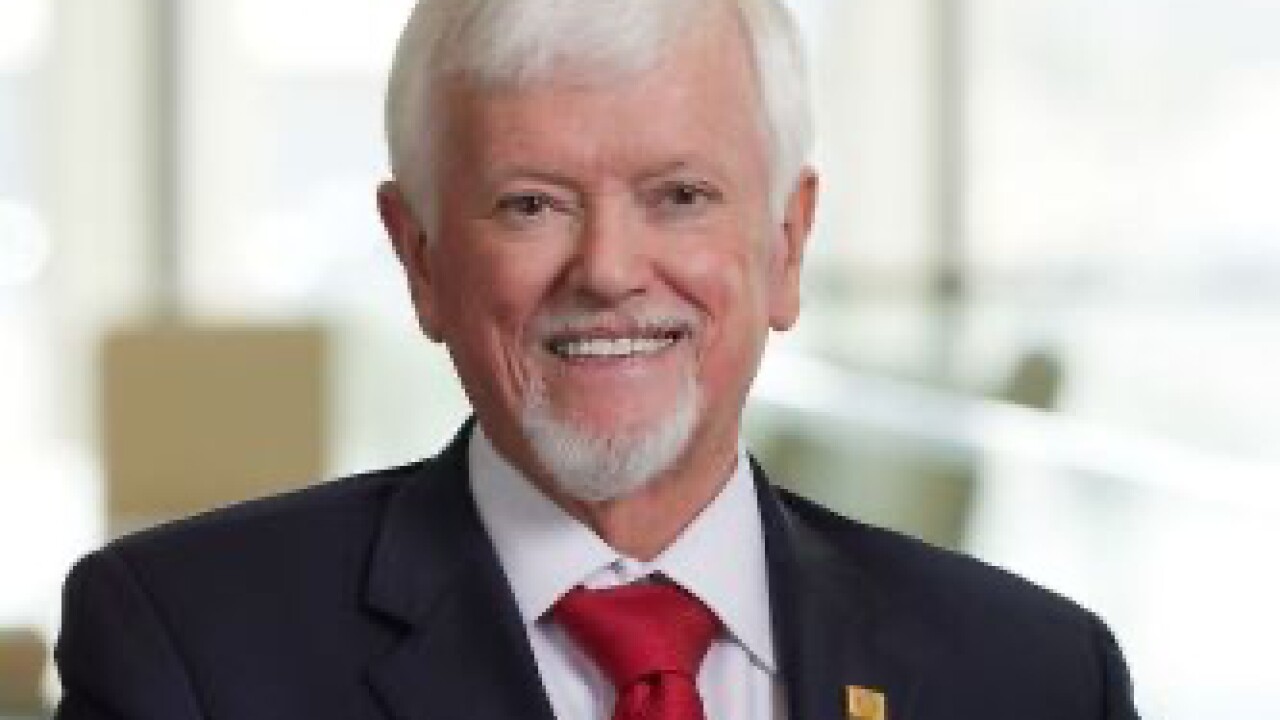-
The federal push to stamp out illegal online lending is having unintended negative consequences, an umbrella group for state banking regulators says.
April 14 -
WASHINGTON The Federal Deposit Insurance Corp. sought to ease concerns about its view of banks' affiliations with online lenders, saying institutions correctly managing their third-party relationships "are neither prohibited nor discouraged" from processing payments for legal entities.
September 27 -
The Federal Deposit Insurance Corp. is facing accusations that it is forcing banks to cut ties with online payday lenders, but the agency says it is only urging banks to be on guard about merchant relationships that elevate their risk.
September 20 -
If government bureaucrats, acting without statutory authority, can coerce banks into denying services to firms engaged in lawful behavior that the government does not like, where does it stop?
March 21
Capital One Financial (COF) and Fifth Third Bancorp (FITB) are terminating their accounts with payday lenders, the latest signs that some banks are becoming pickier about their customers in the face of stepped-up scrutiny by federal regulators.
The two banks confirmed their decisions in response to questions from American Banker.
"We took a range of factors into consideration and determined that this business no longer fits within the bank's strategic priorities," Capital One spokeswoman Tatiana Stead said in an email. It will no longer serve check cashers, either, she said.
Representatives of the check-cashing and payday loan industries see the decisions as part of a broader trend they're calling it "bank discontinuance" in which banks are exiting businesses that they believe have fallen into disfavor with their regulators.
Capital One declined to comment on whether changes in the regulatory environment contributed to its decision.
Fifth Third spokesman Larry Magnesen said that his company's decision to stop serving payday lenders is an extension of an existing Fifth Third policy not to make new extensions of credit to the payday loan industry. His comments also suggested that regulatory scrutiny was a factor in Fifth Third's decision.
"We are working closely with our existing business customers as they seek to establish and obviously transition relationships with alternative providers," Magnesen said. "Those alternative providers may be more comfortable in serving them, and may have a different risk appetite and risk tolerance than we do."
In a recent submission to a congressional committee, the Financial Service Centers of America, a trade group that represents check cashers and payday lenders, listed several banks that it says have terminated their relationships with at least one of its member companies in recent months. Besides Capital One and Fifth Third, banks on the list include Bank of America (BAC), PNC Financial Services Group (PNC), Wells Fargo (WFC) and U.S. Bancorp (USB).
Wells, Bank of America and PNC declined to comment on the trade group's submission to the congressional panel. Officials at U.S. Bancorp had no immediate comment.
Some of the banks that have been terminating these accounts are asserting that the affected companies, including state-licensed payday lenders and check cashers, present a high risk, according to the Financial Service Centers of America.
"Not only do they not define the risk, but their conclusions are unsupported by facts, and, we believe, simply a smokescreen for succumbing to regulator pressure related to the products these companies offer," the trade group wrote.
Before Capital One decided to stop doing business with check cashers, the McLean, Va.-based firm was serving approximately half of the 150 licensed check cashing companies in New York state, according to the Financial Service Centers of America.
"Our members are in the process of moving to other banks," Edward D'Alessio, executive director of Financial Service Centers of America, said in an interview. "Some of them are going to land. Some of them are not going to land."
The exits by Capital One and Fifth Third come as the Department of Justice has been investigating banks' relationships with online payday lenders in a probe that it calls Operation Choke Point. The DOJ says that it is focused on fraudsters, not legally operating companies.
At the same time, federal banking agencies have been stepping up their scrutiny of banks' relationships with merchants that they see as posing elevated risks because they may have a higher incidence of consumer fraud.
It's unclear to what extent the trend of bank discontinuance is being driven by the specific words and actions of banking regulators, and to what extent it's the result of banks making their own judgments about the regulators' views.
The Financial Service Centers of America recently commissioned a survey of its members about bank discontinuance. The survey, conducted by Deloitte Financial Advisory Services, found that 14 of the 61 banking relationships reported by survey participants have been terminated since November 2013. Another seven of the 61 relationships were terminated between August 2011 and late last year.
Update: An earlier version of this story stated that Capital One would no longer provide banking services to what the company called "check cashers and related businesses." Capital One spokeswoman Tatiana Stead later clarified that "related businesses" includes payday lenders. The story has also been updated to include Fifth Third's decision.





